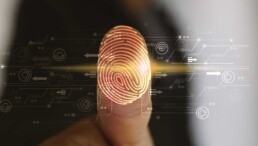Data security, not privacy, the concern for U.S. citizens
While the surveillance actions of the NSA may have generated headlines throughout the last 12 months, it appears that most U.S. citizens are more concerned about data center security than privacy.
According to a recently released survey of 1,000 registered voters commissioned by the Computer & Communications Industry Association, 75 percent of respondents were worried that data breaches would reveal personal information that could be used to perpetrate identity theft, with 50 percent noting that they had either been the victim of a breach or knew somebody that had.
The study, conducted over the telephone by a research group on behalf of the CCIA, also revealed that users were becoming far more aware of the risks posed by traditional means of access control, with 73 percent disabling features that remember credit card information, while a perceived fallibility of passwords was also noted as a major concern. Over 75 percent of those surveyed now use a different password for each service, while 53 percent would favor a two-step authentication process as part of a standard identification procedure.
Choosing what’s important
“Overall, 75 percent are worried about their personal information being stolen by hackers and 54 percent are worried about their browsing history being tracked for targeted advertising,” the authors of the study wrote, according to Dark Reading. “However, when voters are forced to choose which one is more important to them, their focus is almost unanimously (87 percent) directed on the need to protect their personal information from those who would use the info to harm them.”
The publication of this report comes out a time when the security of information is at the top of the agenda for most companies, especially in light of the ongoing revelations related to the Target breach. The last twelve months have been, according to PC World, the “year of the personal breach,” with Living Social, Evernote and Adobe all experiencing significant loss of data. In fact, the news source noted that the five largest breaches in 2013 affected around 450 million individual records – an astonishing amount of information to be lost.
For those involved in the protection of personal data, the challenge in 2014 will be to make sure that security compliance procedures and protocols are able to deal with potential attacks, irrespective of source. If the general public are more concerned about unauthorized access to information than their private lives, then it seems logical to assume that the time is right for a new form of data center security.
Related Articles
Nothing found.
Data center security at top of modernization agenda
With the beginning of the new financial year only days away, data center security is being seen as a vital aspect of ongoing business practices. According to a recently released report, more and more companies now deem it to add value to their transactions, with IT decision makers at organizations of all sizes now looking to upgrade or transform their data center capabilities.
The survey, which was conducted by QuinStreet Enterprise, showed that 88 percent of all respondents would be making investments in their data center strategy, with 36 percent of those interviewed describing their current facilities – either through an internal infrastructure or a managed hosting facility – as a work-in-progress. More than 320 IT professionals and company executives took part in the 2014 Data Center Outlook poll, many of whom cited security as their main concern.
“The data center is changing,” the report said. “No longer perceived as merely a cost center, today’s data center is expected to add value to the enterprise. For this to occur, investment in new technologies to modernize the data center is essential.”
The importance of modernization
Data center security has been at the forefront of attention for some time, especially in the private sector and while the survey didn’t throw up any hugely surprising views or opinions, it appears that the modernization of these vitally important facilities was at the top of the agenda. Around 74 percent of respondents saw enhanced security as the number one reason for upgrading their current systems or protocols, with improved uptime/availability and IT resource usage also scoring highly.
Naturally enough, those surveyed saw a number of potential barriers to modernization ahead – both financial and technical. According to the authors of the report, 58 percent of respondents saw security compliance as a challenge itself, with 51 percent revealing that an inadequate budget may hinder progress. Server virtualization was also a major factor, with 46 percent answering that their data centers were already employing this consolidation and optimization technique.
In terms of transformative technologies being introduced into existing or planned data centers, the survey found storage virtualization accounted for 29 percent while 26 percent claimed that energy-efficient hardware was a key factor. The influence of the cloud was also seen to be important, although only 19 percent of interviewees dependent on that model of delivery within their company format. However, 77 percent of respondents noted that they relied upon the cloud to deliver enhanced security, a sign that the technology will continue to grow in the coming months and years.
Making decisions
When it came to making decisions on how data center security should be implemented within the organization itself, the study noted that 63 percent of IT managers and 39 percent of business managers were the ones that had the final say. However, only 40 percent of those identified employees were in charge of approving budgets for acquiring hardware or software.
Finally, the top information resource for learning about where and when to invest in a data center upgrade was found to be, unsurprisingly, tech-related content sites. According to Baseline, these accounted for 60 percent of all upgrade-centric requests, with peers/colleagues or networking garnering scores of 56 and 55 percent, respective.
Related Articles
Nothing found.
Will 2014 be the year that biometric security goes mainstream?
With the end of the year now only a few weeks away, media conversations almost inevitably turn to what will become part of the zeitgeist in the next 12 months and it appears that a number of technology analysts see a huge future for biometric technology.
According to Wired, 2014 will see biometrics accepted as the right tech for the moment, with authentication and access control increasingly moving away from keys, codes and passwords towards physical forms of user verification. While biometric security is well-established in border security and crime prevention, there is a growing acceptance that human characteristics such as a fingerprint are extremely hard to replicate, hence the consensus that biometrics time is close at hand.
This move toward biometrics as a form of security compliance has gathered pace in a number of industry sectors, especially for those who run or operate data centers. This has dovetailed with an increased awareness of the value of information, with consumers now fully cognizant of the fact that personal data needs to be protected at every level.
Understanding access control
There have, naturally enough, been several signs that biometrics is on the cusp of mainstream adoption, with the introduction of fingerprint sensors in mobile phones seen by many as a huge step forward. However, this is the tip of the iceberg when it comes to how influential biometric security will be in 2014, with data protection once again at the heart of the conversation.
In fact, the security of data has become a selling point for an increasing number of companies, a scenario that may have been inadvertently been assisted by the actions of the NSA over the course of 2013. Individuals are now aware that data centers are at the center of a battle between companies and the government as to who and what can gain access, and while it may seem that the concerns are virtual, the physical aspect of protection can certainly not be understated.
Companies that have adopted biometrics have, according to a recent article posted on Business Reporter, seen an improvement in customer satisfaction and trust. One of the major concerns of an increasingly digital world is the level of access that can be achieved through the simple act of misplacing an identity card or physical key, while passwords are now seen as a weak link in the security chain.
Biometrics, on the other hand, are a demonstrated means of monitoring personal access to a variety of facilities, and if the media buzz around the technology continues to build, then mass adoption could be sooner rather than later. Predicting the future is never an easy task, but if the stars align in the way that they seem to be, 2014 could be a very good year.
Related Articles
Nothing found.
Cold War bunkers provide data security in Switzerland
The Swiss have always had a reputation for keeping financial information safe from unwelcome visitors, and it looks as if this widely acknowledged trait is extending to the data center security sector as well.
According to a recently posted article by French news agency AFP, business is booming in the region, with a number of isolated underground army facilities now getting a second lease of life as a data center, many of which are already equipped with biometric security and – occasionally – armed guards. There are currently 55 data centers in Switzerland and in light of recent concerns regarding not only unauthorized access but also the potential for key card or password misuse, security industry analysts predict that the land-locked European nation could easily become a leader in the field.
Many of these underground facilities date back to the Cold War, meaning that they are already located in parts of the country that are – for all intents and purposes – well protected against intrusion. However, the Swiss have never taken data security lightly, with the news source noting that biometric technology is one of a number of technologies being employed to limit access to data server racks themselves – an essential part of providing clients with the confidence that data management and protection is at the heart of the operation.
Well-earned reputation
For example, one data center near the village of Attinghausen was formerly the headquarters of the Swiss Army and although its actual location remains a closely guarded secret, its subsequent re-engineering is allowing companies from all over the world an opportunity to access the country’s expertise in privacy. In an interview with the news source, Peter Gruter, head of the Swiss Telecommunications Association, noted that Switzerland is trading on its previous experience in what he referred to as “tight-lipped confidentiality,” a situation that has allowed its data protection industry to appeal to a global marketplace.
“In other countries, all kinds of institutions have access to these data, but here you need permission from a judge,” he said. “That is a great advantage compared to, for instance, the United States.”
The news that the Swiss are making inroads into data security and management should come as no surprise to anyone who has a bank account there, but with data center security on the top of the agenda for many companies, knowing that there are underground bunkers protected by biometric security controls is likely to gain traction in a number of industry sectors. The Cold War may be part of history, but it seems that some Europeans will continue to find a use for the facilities it left behind.
Related Articles
Nothing found.
Microsoft adds support to biometric security adoption
The widespread acceptance of biometric technology looks set to continue into 2014 after Microsoft announced that it would be an integral part of the latest version of its popular operating system.
According to Tech Target, Windows 8.1 will support biometric authentication through a fingerprint scanner, with the expectation being that this will provide users with the means to ditch passwords as the primary means of accessing the features associated with a variety of Microsoft applications. While biometrics is certainly not a new avenue for the company to explore, it could be seen as another sign that the technology is being channeled towards the general public as a whole.
If this is the case, then it follows that biometric security will become more familiar, especially when taking into account Apple’s recent embrace of fingerprint authentication protocols. According to the news source, the Microsoft user account itself must be configured to accept a biometric sign-in, with the operating system now updated to integrate fingerprint scanners as standard means of verification.
Microsoft has been a strong supporter of biometric security in the past, and it will be interesting to see how other companies react to its decision to make the tech part of an application and registration process. Naturally enough, the company has ensured that the software limits the number of attempts that a user can make to access the system, with the news source noting that as the authentication technique becomes more common, companies will likely make sure that physical security strategies are updated to fit in with this trend.
The last twelve months have seen biometrics achieve a level of public acceptance and awareness that has arguably been the remit of the data security sector. While there is no doubt that the technology is one of the most secure means of access control, making it easier for users to understand and implement into their daily lives is likely to play a part in mainstream adoption.
Related Articles
Nothing found.
Demand for managed services will see data center revenue rise
Growing demand for managed services in the high tech and telecommunication sector will see the market reach new financial levels by 2018, according to a recently released report.
Research conducted by MarketsandMarkets has shown that the industry will generate annual revenue of over $256 billion within the next five years, with a high demand for data centers, access control and managed security contributing to continual growth across the globe. According to the report, North America remains the largest market in terms of revenue contribution, although there is likely to be a demonstrated uptake in managed services and data center security in regions such as Europe and Asia Pacific.
The need for third-party supply of these services comes at a time when the concept of risk sharing is gaining greater prominence. According to the authors of the report, implementing managed services into business operations can reduce internal IT costs by 30 to 40 percent, with the study showing that nearly operational efficiency can be increased by up to 60 percent.
Removing the need for an in-house infrastructure ensures that an organization can concentrate more on its core business strategy, with the report noting that managed services allows for the reduction in capital expenditure in terms of internal IT requirements. At the same time, managed servicing provides companies with a opportunity to take advantage of the latest advances in data center security, thereby ensuring that the data center itself becomes an integral part of the equation.
Ensuring security
This naturally means that verification of user identity is key. Writing on Tech Target, Clive Longbottom noted that data security strategy was paramount, with multi-level identification going beyond what he referred to as “the normal challenge-and-response username/password pair.” According to Longbottom, this is likely to see an increase in the use of biometrics and will ensure that assets are only available to the right people in the right place.
This puts the onus back on the data center itself, especially when considering that managed services is now a common option for many business decision makers. It also means that an organization has to identify where any potential breaches may occur, with information becoming an increasingly valuable commodity beyond the walls of a physical location.
Finally, the expansion in the sector will likely be driven by the variety of industry verticals that recognize the benefits of outsourcing their IT and data storage requirements. With technology unlikely to stand still, there is reason to believe that the optimistic forecasts of the report will prevail for some time to come.
Related Articles
Nothing found.
Is biometric security heading for Main Street?
Business leaders in the financial services sector are probably more aware than most of the need for data security. In recent years, there has been a noticeable increase in the number of people who have been affected by identity theft, much of which have come from either unauthorized access to seemingly secured information facilities or, more often than not, the theft and cloning of a physical payment method.
This has ensured that companies are always looking to evolving technology as means of limiting identified shortcomings within their business model, and while biometric security is seen by an increasing number of financial services providers as a means of protecting user data at source, there are signs that will continue its recent emergence into more mainstream adoption. According to a recent report by ATM Marketplace, Bank of America has submitted a patent for an ATM machine that requires an individual to use a fingerprint scanner as part of a personal banking transaction, and there are some who see this a major step towards wider acceptance of demonstrated biometric access control platforms.
If this is the case, it is assumed that this would fit with the general consensus that biometric systems are the most secure way to not only protect user identity, especially when it comes to limiting a long-standing reliance on bank cards as a form of payment. According to records published by the U.S. Patent and Trademark Office in October of this year, the bank submitted its patent application in 2012, and while the details of the system are suitably vague, the endorsement of biometric security by a leading high street presence is certainly of interest, especially when considering the recent user identity innovations in a popular smartphone.
Increased integration
While the intentions of Bank of America remain unclear at this time, it is worth noting that biometric security systems have already been installed in ATMs in Europe, while the Central Bank of Nigeria is reportedly in the process of deploying a $50 million access control project throughout its entire banking system. What needs to be considered, however, is the reasoning behind BofA’s 2012 patent application and whether it has any demonstrated link to access control successes in other data-centric departments.
Writing for Computer Weekly, John Petersen noted that the introduction of the Apple iPhone 5S had raised the biometric discussion to a new level, with the level of risk rising depending on where and how the technology is used. Citing the fact that the finance sector is already using biometrics in terms of securing information in data centers, the challenge is now to match effective user experience with the secure physical options that a biometrics platform can offer. And, according to Petersen, what Apple have done well is to introduce the idea of ease of use, a scenario that could naturally fit into the introduction of a biometric ATM at retail banks.
“The use of fingerprint in the case of the iPhone is actually really effective,” he wrote. “Apple’s primary reason for introducing it was in fact ease of use more than security, yet they appear to have been judged purely against the criteria of secure access. The key to using biometrics is to apply them in a way that is appropriate to the context.”
Irrespective of whether a best-selling smartphone is responsible for biometrics becoming part of the technology zeitgeist, what is clear that integration is certainly on the minds of business leaders and analysts. Bank of America may have applied for a patent purely to protect their own interests, but it highlights just how important biometric security has become within the private sector, particularly in the way that it can secure user identity and access to data. With that in mind, being able to access banking details at an ATM with a fingerprint scanner may still be some way in the future, but it could certainly herald an increase in consumer awareness and adoption.
Related Articles
Nothing found.
Being proactive can improve data security
The potential for losing information in a data center security breach becomes a concern after the event has actually happened, with organizations only getting serious about improving their security protocols if that loss can affect the bottom line, in the opinion of an industry thought leader.
According to David Lacey, a security expert with 25 years of experience of directing policy in the UK at companies such as Shell, business leaders should be more proactive in terms of access control, with regulatory compliance no substitute for actual data loss prevention. Speaking at a recent conference in Canberra, Australia, Lacey went to great lengths to explain how infrastructures within companies can be affected by external elements, with the value of that data seen as integral to the need to improve security at every level.
"In these organizations you can have very strict rules, all you need to do is have a very big set of rules and laws, create a perimeter around it, and you've got a secure organization," he said, according to CSO.com. "The organization of the future will be enabled by networks with very soft internal rules and relationships – very soft policies because it's constantly changing. It's constantly creating new relationships, new products, its moving very fast, so it's very outward looking. It will be an entirely different organization where the emphasis is on flows of information and relationships, not on fixed assets."
Assessing a potential loss
Lacey's remarks would certainly seem to fit into the current mood surrounding data center security. While the media has concentrated on the ongoing NSA revelations, businesses have become aware of how valuable their data can be in the wrong hands. According to Midsize Insider, his opinions could be seen as closing the door after the horse has bolted, but they highlight just how important data center security has become for business owners in general, with the news source noting that "convincing business leaders of the perils of data loss and poor data integrity is a good first step."
Over the last few years, data breaches have become increasingly common, with many of them going unreported by the companies involved. What is more worrying is that there continues to be an attitude that these breaches happen to other people, a scenario that may contribute to a reactive rather than proactive stance by some business leaders. Naturally, every organization will look at data center security differently, but it is always worth bearing in mind that putting the right tools in place to prevent loss at the start could make a world of financial difference.
Related Articles
Nothing found.
Data protection remains crucial for IT leaders
Data breaches remain the prime concern for companies across the globe, with the financial consequences of unplanned downtime deemed to be extremely damaging for both business and IT leaders.
According to a report released by data management company EMC, the average annual loss incurred as a result of these breaches was found to be over $860,000, with 61 percent of 3,2000 respondents claiming that their company had experienced a data loss within the last 12 months. The findings of the global IT Trust Curve survey also revealed that those surveyed found that the major roadblocks to achieving greater levels of security compliance were also mainly financial, with budget and available resources cited as reasons.
The results of the EMC study also showed that many senior executives have a demonstrated lack of confidence in the levels of security and data recovery systems currently being used. According to the report, 45 percent of respondents saw this a major factor in terms of financial losses incurred during breaches, with those interviewed claiming that an IT-related incident could have a serious effect on the real-life running of a business in the near future.
Writing on the EMC company blog, Heidi Biggar noted that data protection was more important now than at any other time in the last year, stating that companies were reaching a "tipping point" in terms of data security and associated infrastructure. According to the figures released in the report, of the 61 percent of respondents who experienced unplanned downtime, 45 percent cited a loss of employee productivity, 32 percent demonstrated a loss of confidence and 27 percent saw incremental business opportunities disappear.
"It's fueling concern within organizations not just about the readiness of the IT team to reduce unplanned downtime and data loss but also among business teams about IT's very ability to move forward aggressively," wrote Biggar. "And this has the potential to stall strategic IT initiatives around Big Data, cloud computing, mobile, etc., and can cost your business big dollars in lost revenue, lost business opportunity and lost productivity."
With that in mind, the results of this annual survey would seem to cement the notion that the more attention a company pays to protecting its data and establishing access control protocols, the stronger the foundation of IT becomes throughout that organization. In a world that relies increasingly on data to advance and support business success, IT leaders should be looking to make sure that limiting the potential for data or security breaches remains at the top of their agenda, especially in the hyper-connected 21st century society that we all inhabit.
Related Articles
Nothing found.
Yahoo promises to step up data center security
Yahoo has responded to the recent revelations about the NSA's unauthorized information gathering by announcing that it will be encrypting all communications between its global data centers, with the aim being to protect all of the online activities of the firm's 800 million global users.
According to The Associated Press, data center security has become a hot topic in the aftermath of the NSA leaks, with Yahoo joining both Google and Facebook in wanting to limit the amount of access that the federal agency has. Writing on the company blog, CEO Marissa Mayer reiterated that access control remained a priority for the California-based firm, and that the process of encrypting all data would be completed by the end of March 2014.
"We've worked hard over the years to earn our users' trust and we fight hard to preserve it," she wrote, adding that Yahoo had "never given access to our data centers to the NSA or any other government agency."
Google has also revealed that it would stepping up security measures at its data centers, with encryption seen as the first step. The firm has been involved in this process since 2010, with the tech giant making sure that its popular Gmail service was the first to be protected from unauthorized government access, but has admitted that it has been legally bound in the past to provide some information under the court-monitored PRISM program.
While the NSA has maintained that its actions are a necessary part of homeland security, it has raised questions about how secure information actually is. According to Fox News, some of these internet-based companies are afraid that government spying may force some individuals and businesses away from their services, a scenario that could affect their bottom line and potential advertising revenue.
"Recent disclosures make it clear we need to invest in protecting customers' information from a wide range of threats, which, if the allegations are true, include governments," said a spokesperson for Microsoft, in an interview with The Register. "We are evaluating additional changes that may be beneficial to further protect our customers' data."
What the NSA surveillance has ultimately done is ensure that data centers themselves are on the information front line, with companies that operate these vital communication tools well aware that they are now coming under greater public scrutiny. As a result, server rack security has risen to the top of the list for business organizations, with physical protection in the form of biometric technology just one of the ways that unauthorized access can be limited.
Related Articles
Nothing found.







